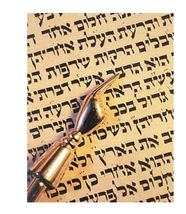
She asked about how Jews by Choice feel about the Christmas tree. Here are her 3 questions.
What do converts know of the origins of the Christmas tree?
Given that it is pagan, would you have one in your home – especially if your kids wanted one? Why or why not.
Do you view a Christmas tree as Christian?
Replies:
There is not a conflict for me as I currently live alone and do not have to consider children.
Yes, of course I view a Christmas tree as Christian! The name is clear, no? Christ-mas tree!
My son and grandsons do celebrate Christmas, largely as a secular holiday, and have a Christmas tree. I enjoy buying them Christmas presents and dining with them that day, but it is clear that I do not celebrate the holiday and my son refers to my gifts as Hanukkah gifts.
Hannah
***
Here are a few thoughts about my understanding of Christmas trees:
They originally were put up to celebrate winter solstice, or Yule, or Yuletide, and the days growing longer again after the solstice occurred (a pagan celebration).
The Catholic church co-opted these celebrations into Christmas and turned the Yule tree into a Christmas tree, so now it’s basically a Christian-related tree vs. Yule or pagan.
Many people see Christmas trees and other Christmas items as “folk” or family traditions instead of religious traditions. I have siblings who are in that camp.
I also have Jewish friends who celebrate the holiday season with a Christmas or Yule tree. One Jewish friend hangs a stocking on her fireplace mantle next to her tree, but the stocking has “Happy Hannukah” on it, which I think is kind of funny. I don’t take many of these cross-over things very seriously. To me, almost everything is a form mythology (e.g., Santa Claus, the oil burning 8 nights), and it’s just a matter of which mythology you choose or prefer.
My born Jewish wife and I don’t mind “helping” non-Jews celebrate Christmas (such as my siblings) but we don’t celebrate it ourselves and don’t have a tree or other Christmas items -- Chanuka only. Some Jews participate in Christmas activities, as if they didn’t want to “miss out” on the fun, or they see it as a form of “multiculturalism” or “diversity”, but to me Christmas commercialism is so overwhelming, I can’t see it as something that needs further promotion.
But again, I don’t take these things as seriously as my wife does. It is interesting to me that some Jews refuse to get stressed about anything pertaining to Christmas while other Jews become seriously depressed about it, as if their “seasonal affected depression” is triggered or made even worse by the Christmas season. My wife tends to fall into that category, especially when it comes to our adult daughter’s husband and in-laws celebrating Christmas, but I try not to go down that path and try to take more of a “live and let live” approach. Again, it’s all mythology of one form or another, and when kids grow up, they will see it all for what it is. I realize that some people have much stronger sentimental attachments to things they did growing up than I do. I tend to be more skeptical and detached. Personalities are all over the map, so it’s easy to make generalizations that are not accurate.
David
***
I see it as a seasonal symbol, not Jewish but also not specifically Christian. I have no kids but my partner loves to have a tree as a symbol of New Year with no specific religious meaning (c’mon, it’s not a créche!!) so I have no problem with it so far.
Adir
***
I love this question. Here is my far-too-long response!
1. Recognize that for many Jews by choice, the CTI (Christmas Tree Issue) can be as long-lived as a redwood tree and if you are concerned about it now be warned that you might be concerned about it for years to come! However by the time you finish reading this, maybe not.
2. The Christmas tree being pagan in origin is a point relevant only in a conversation about the pagan origins of things with the few people who can get their mind around what pagan even means. It's not relevant for Jews who converted from a Christian tradition because of just that, they converted from a Christian tradition, not from a pagan tradition.
3. The pagan origins of the Christmas tree is also not relevant for two sets of non-Jews: Christians, who consider it a part of their Christian holiday; and agnostics and atheists who celebrate Christmas as a delightful holiday but who turn a blind eye to the Christian themes. That last point is easy to do because in fact the Christian themes are secondary to the agnostic-themes such as Santa, santa hats, red and white candy-canes, anything else red and white, reindeer, red noses, antlers, gaily-colored wrapped gifts, red ribbons, anything and everything red and green, holly, snowflakes, robins in the snow, sleighs riding through the snow, snowmen sitting in snow, anything else in the snow, etc etc, and not forgetting mistletoe and yule logs (bringing up the pagan rear guard again). The fact that Christmas is "supposed" to be anything about Christianity is lost in a blizzard of Christmas-imagery, which are essentially "winter celebration things".
4. Missing from that list above is: the Christmas tree. It's such a central point to the Christmas-imagery list that it deserves to be in a list of one all by itself. A Christmas tree means only one thing, Christmas; its very name says it all. It doesn't have a darned thing to do with Christianity, but as per above list it has everything to do with Christmas.
5. For Jewish converts struggling with the CTI, that can be a lot of heavy baggage to drag out of the way on the journey to living-Jewish, a point which is important to Jews by Choice who are sensitive to imagery which either "proves" their Jewishness (like having a menorah in the window) or "proves" their previous non-Jewish background (like having a Christmas tree in the window).
6. Neither of those things actually prove anything but such imagery is a touchstone which sends out a signal to the Jew by Choice and to everyone else regarding "what that person really is".
7. Having a Christmas tree, if you are a Jew by Choice, sends a mixed signal. "Who am I?" says that signal. For yourself, if you converted, then you are a Jew, and having a tree in the living room for 2 weeks of the year will not undo your conversion. For everyone else looking through the window, it's none of their damned business but if you are troubled by that put the tree away from the window.
8. The Jew by Choice struggling with the CTI may be tempted to claim "it's OK for me to have a Christmas tree because it's pagan in origin", but that would be dishonest (even if it's a factually true statement) since it's not very likely they ever gave paganism a second thought when they had a Christmas tree back in their pre-Jewish days, and it certainly won't convince anyone else looking in as they won't know anything about pagan origins unless they were in that rarified conversation in paragraph 2 above.
9. But having a Christmas tree because your kids want one is a very good reason to have one. Who says one set of people can't join in the cultural fun of another set of people? If you lived in a society that keeps to its own, such as Hasidic Jews do, then this and other dilemmas of assimilation don't arise but the fact you are even asking about the CTI suggests you aren't anywhere close to such a society. The value to the kids in having one may be greater than the value to yourself in not having one.
10. So buy the tree and enjoy it and assuage any guilt by blaming the kids. Then when they grow up stop having one, if the CTI still bothers you. By then you may have dropped it anyway, or you will have come to realize that having one doesn't actually matter unless you make it matter. Either way, at that point the CTI will no longer be an issue.
Eliezer
Note: It is a very Western culture viewpoint to see individual expression as of primary importance. Judaism is not an individualistic culture; it is communal. What impacts one Jew, impacts all Jews. We should be thoughtful in what we dismiss as simply for our own happiness.
***
About Christmas trees -- I don't have one, but I also don't view it as Christian because Christmas is so commercialized nowadays anyway together with all the expected shopping, trees, etc. It is like red roses for Valentine's Day...
I don't have kids, but if I did, I would take this as an opportunities to explain what it is, what it symbolized, etc. with a view of understanding "foreign cultures." In fact, my father is a daoist. That was how he explained the Christmas tree and other different religions to me when I was growing up. It's more of cultural arts/humanities & social studies in our home back in the days.
Binah
What do you know of the origins of the Christmas tree?
Originally German. Came to England through German rulers. There were early German influences (late 1700’s- early 1800’s) in the US & Canada. The popularity of Christmas trees in Victorian England (1840’+) really cemented the popularity of Christmas trees in America.
Given that it is pagan, would you have one in your home
Pagan origin has nothing to do with it. Do you think that Jews were the first people to blow rams horns or play harps?
We haven’t had one in our home for more than 20 years. Even before that we didn’t place much importance on it. We did go to friends Christmas parties and our daughter went to homes for friends and relatives who had Christmas trees.
Do you view a Christmas tree as Christian?
They are both a Christian thing and, in our era a more cultural item.
Don’t forget that, historically, some American Jews did have Christmas trees. Southern Jews often had them. Alfred Uhry wrote three plays about Southern Jews in his Atlanta Trilogy. In the first two, about assimilated Jews, Driving Miss Daisy and Last Night at Ballyhoo, there are Christmas trees at the parties in the protagonists houses – without stars or creches.
Most of the intermarried families that I know have trees and Christmas parties.
Mikhael
Note: Mikhael is right, most interfaith families have a Christmas tree. This speaks to the intense power and attachment that the tree represents, to Americans (not necessarily Christian) who have had one all their life. We can dismiss this, but we would be foolish to do so. Anything with such a strong emotional impact on humans matters.
***
Christmas trees are of pagan origin. Pagan pretty much means Avodah Zara. Avodah Zara is explicitly forbidden. So no Christmas trees in Jewish homes if you care about biblical commandments.
Shifra
Note: I am glad Shifra raises this important point as it is often forgotten. The Torah does not say a single word about Christianity because Christianity didn't exist in biblical times. It has a great deal to say about paganism; in fact it rails against paganism. In today's world few Jews feel threatened by pagan practice, however is it biblically forbidden. Whether you personally accept this it is important to understand that historical and traditional Judaism do! Therefore, know what the teachings say and be prepared to discuss this topic knowledgably.



 RSS Feed
RSS Feed